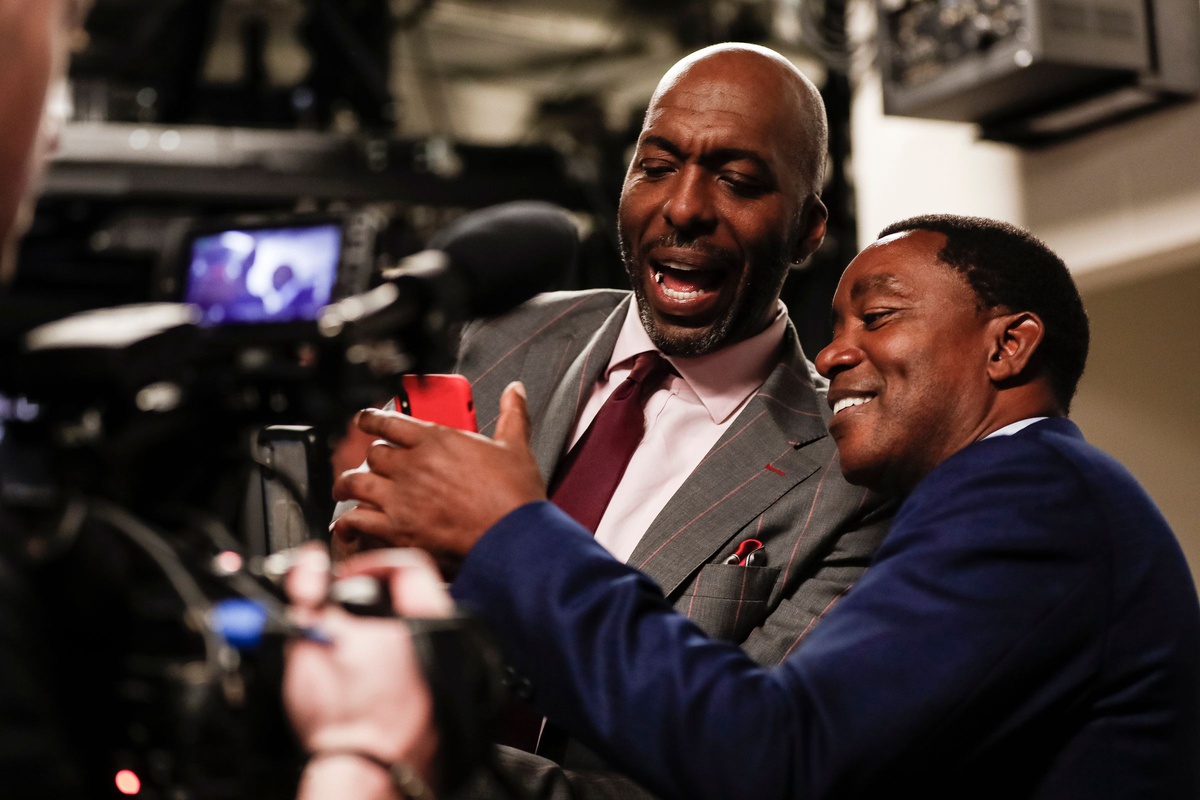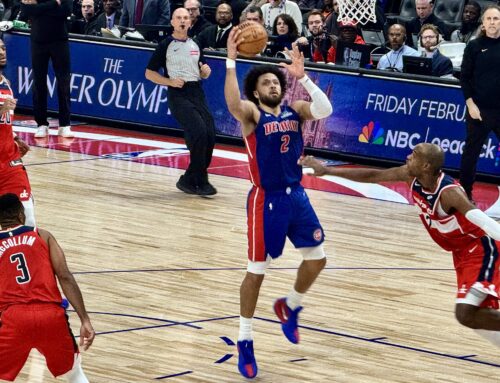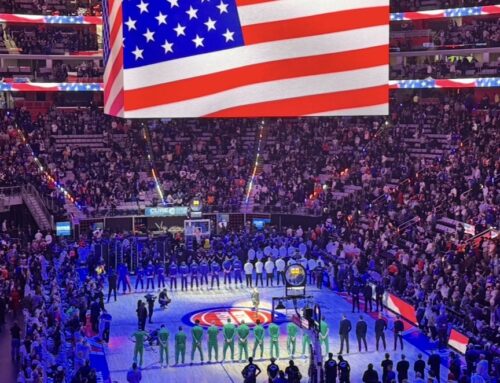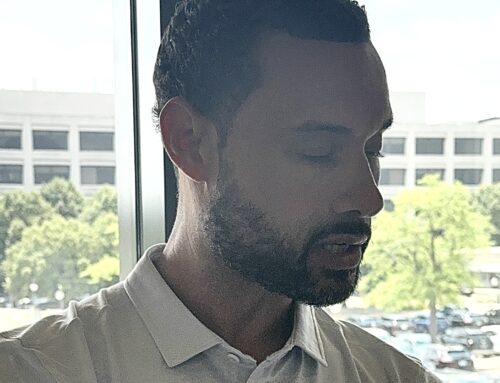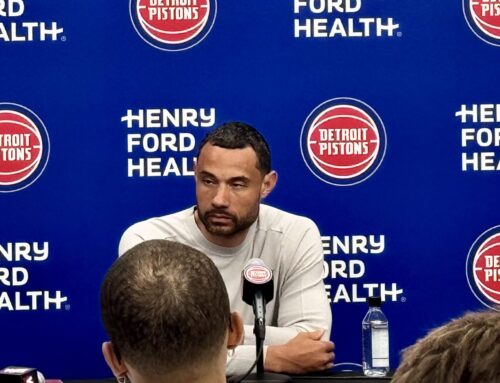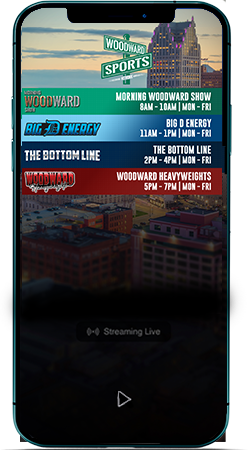The Bad Boy Detroit Pistons of the late 1980s were known as being physical bullies. They were known for the majestic play of guard Isiah Thomas, the scoring and defense of Joe Dumars, and the bump and thump defense of Rick Mahorn, Bill Laimbeer, and Dennis Rodman.
There is an important part of their game, however, that gets overlooked.
And it’s their mental toughness.
The Pistons’ way was also to remain strong between the ears, getting inside opponents’ heads. It was to sow the seeds of self-doubt no matter the situation.
Let me take you back in time to March 31, 1989, to a game at the forgettable Key Arena in Seattle. The Pistons were getting throttled by the Supersonics at the half.
Seattle 69, Pistons 46.
That was the dreadful score of the game as Thomas stepped from the visitor’s dressing room to walk onto the court for the second half. The press room happened to be near the visitor’s dressing room. I walked part of the way with Thomas toward the court.
A few minutes early, Sonics players leaped and danced off the court as if they’d won an NBA title. The Pistons noticed, and they wanted to throw water on the flames.
“Tough game, huh,” I said to Thomas.
“Yeah, it is,” he admitted. “I cannot guarantee we are going to win this game, but it is going to come down to the final minute. They think the game is already over. And we are too stupid to think the game is over.”
“We have to come out now and put doubt in their minds.”
The Pistons did that by beginning the second half with a 9-0 run.
Although the Sonics still led by 16 points, the Pistons had sown the seed of doubt. The Sonics walked toward the bench as if they’d seen a ghost. Despite trailing by 16 points, the Pistons walked off the court as if they were in charge.
And that’s the mental game that goes unreported in sports.
The Pistons surge continued. Along with that, Thomas’ prediction came to fruition. The game came down to the final possession in the game’s closing minutes.
The Pistons won that game 111-108 against the deflated Supersonics.
Thomas did not play particularly well that night. Despite that, he still finished with 21 points and four assists. Joe Dumars put up 27 points, Mark Aguirre had 22, and Bill Laimbeer chipped in 20, pacing the offensive attack. Much of what I learned as a sports writer came at the knee of the Bad Boy Pistons, who often talked about mental toughness.
It was a tough team to covering a team filled with big personalities and egos. Pistons coach Chuck Daly said it was like coaching 12 corporations. He knew who he could push and who he could not. For instance, if Thomas or Laimbeer made a mistake, Daly took it out on 7-foot reserve center John Salley, both team comedian and whipping boy.
Salley fell low on the totem pole and let harsh words bounce off him like water off a duck. And Daly feared that if one of his superstar players sulked following a stern tongue lashing, it would ruin the team chemistry.
One lesson I learned is that there is no such thing as momentum between games or seasons with this team.
The Pistons were 8-8 in the final 16 games of the 1989-90 season. And there was mild concern in this city. Detroiters heard that the Pistons could not turn it on quickly enough to challenge for a second straight championship. I was young and fell for the fake and wrote such a story.
Pistons players scolded me for the article and said, “Watch. That is exactly what they were about to do.” They had become mentally exhausted and took a bit of a breather after clinching the number one seed in the East and the playoffs.
When the Pistons played teams that had beaten them the previous month, enthusiasm filled each town. Writers wrote that their teams had sent a message to the Pistons with recent wins.
Well, the Pistons didn’t receive the messages as they focused on their games. They claimed to abstain from sexual activity and ran rampant over the league in winning their second title. The mental game was at work. And the Pistons worked it well.
Follow Foster on Twitter at TerryFosterDet.

